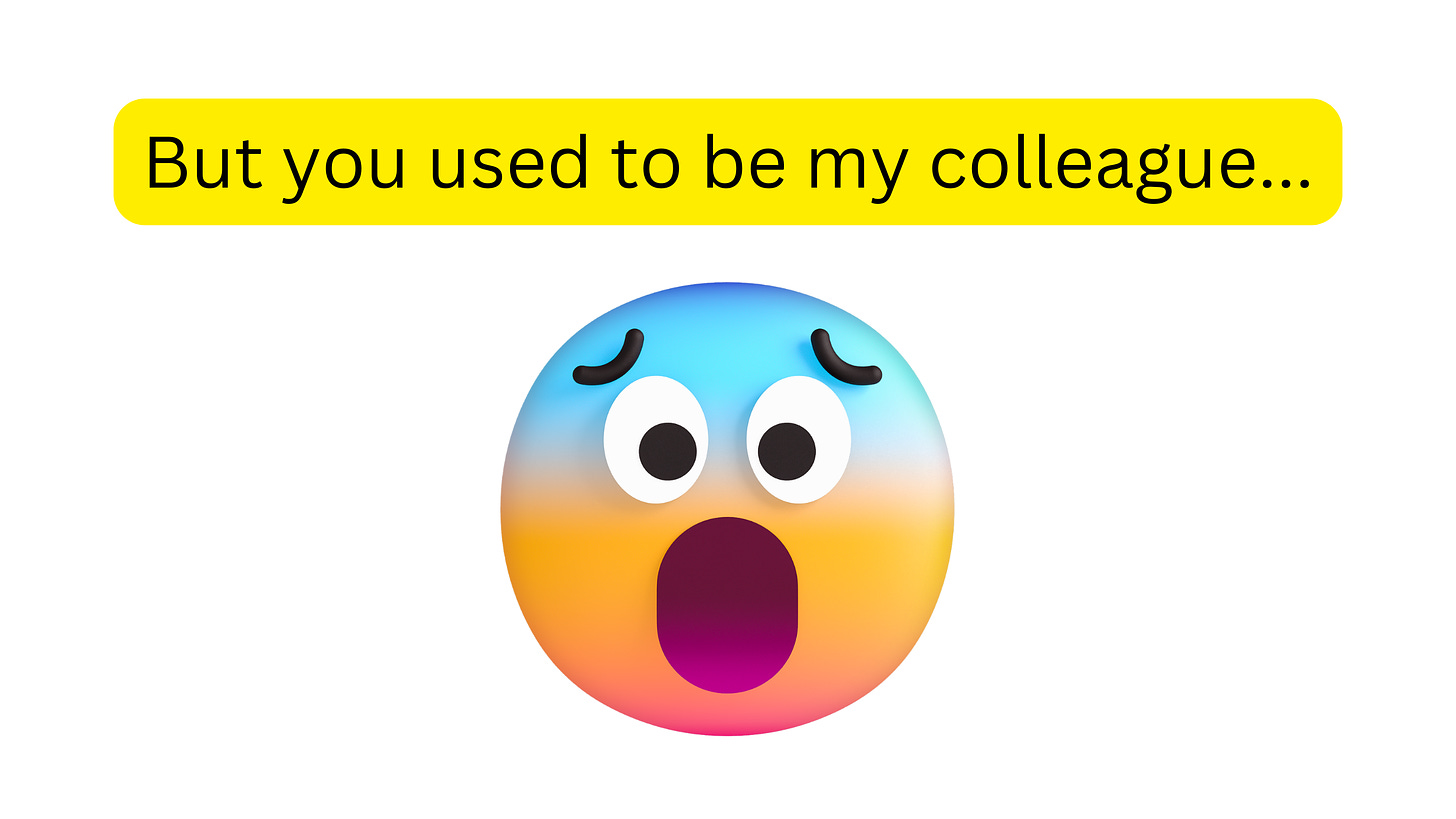How to Manage former peers as a first-time Engineering Manager
Managing former peers is one of the trickiest challenges for a new engineering manager. The shift from colleague to leader requires careful balance, clear communication, and strategic thinking.
You’ve just been promoted to Engineering Manager, and it’s exciting, but there’s one challenge: you’re now managing the very people you used to work alongside. The ones you had coffee breaks with and teamed up with to go through endless logs. Now, you’re their manager. Feels a bit awkward…
It’s totally normal to feel unsure about this new dynamic, but with the right approach, you can lead your former peers without losing your connection to the team. Here’s how you can make the transition smooth and successful.
Consider supporting my work and subscribing to this newsletter.
As a free subscriber, you get:
✉️ 1 post per week
🧑🎓 Access to the Engineering Manager Masterclass
As a paid subscriber, you get:
🔒 1 chapter each week from the book I am writing “The Engineering Manager’s Playbook”
🔒 50 Engineering Manager templates and playbooks (worth $79)
🔒 The complete archive
Acknowledge the Shift
First thing’s first—don’t pretend nothing has changed. It has. When you step into your new role, have an open conversation with your team. Acknowledge that while your responsibilities have evolved, your respect for them hasn’t changed.
This conversation prevents future tension and lets them know you’re aware of the new dynamic. Emphasize that their expertise and input are just as valuable, and you’re excited about this new chapter together.
Set Clear Expectations
Moving from peer to manager can create blurred lines, so set clear expectations from the start. Outline roles, responsibilities, and decision-making processes upfront. You might be tempted to let things slide with your old buddies, but that can lead to confusion down the road.
By creating structure and setting expectations, you ensure the entire team knows what’s expected from them—and from you.
Maintain Professionalism
You don’t need to become overly formal, but maintaining professional boundaries is important. If you start playing favorites or being too casual, others will notice quickly—and it won’t end well.
Consistency is key. Treat everyone fairly, apply the same standards across the board, and make sure friendships don’t interfere with decisions. Professionalism doesn’t mean losing your approachability, it just means you’re fair to everyone, regardless of past relationships.
Establish Authority Without Being Overbearing
New managers often make the mistake of overcompensating—either being too strict or too lenient. You don’t need to prove your authority by being overbearing. Your team already knows you; now it’s time to show that you’re the right person to lead them.
Lead by example, involve your team in decisions, and earn respect through your actions. You don’t need to shout to be heard—show them through your leadership.
Focus on Team Growth
As a manager, your job is to support the growth and success of the entire team. Help your former peers develop new skills, take on complex projects, and pursue their professional goals. When your team succeeds, you succeed.
Celebrate wins, give credit where it’s due, and create a culture of shared success. This reinforces your role as a leader who genuinely cares about the team’s development.
Handle Conflicts with Care
Conflicts are inevitable in any team, but when you’re managing former peers, it can feel more personal. Address issues head-on with empathy. Stay neutral, and don’t let your personal history with anyone cloud your judgment.
When your team sees that you’re handling conflicts fairly and professionally, it builds their trust in your leadership.
Seek Feedback and Mentorship
Let’s face it—no one nails management on their first try. Ask your team for feedback on how you’re doing, and find a mentor who has managed former peers before. A mentor can offer valuable insights and help you navigate the challenges of your new role.
Useful links
👨💻 Become a better Software Engineer with CodeCrafters (use my partner link to get 40% off and build your own Redis, Git, Kafka and more from scratch).
🎯 Book a mock interview with me (System design or Behavioural & Leadership) to smash your next real interview!
👋 Let’s connect on LinkedIn!




